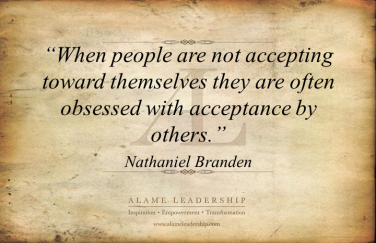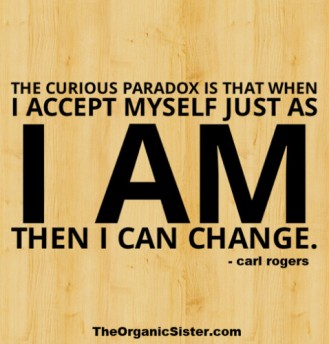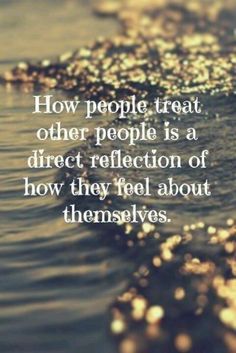When you think of all the roles we play in life, we have different relationships with many different people.
All these different relationships make up different facets of our life, and have varying degrees of importance. Often the most important relationships in our lives are the ones we have with our children, our partner, our parents/siblings and our closest friends.
These relationships are all important, and shape us in different ways. Because they all affect is, is it fair to say that any of them is more important than others? If you had to pick one relationship in your life and say it was the most important one, what would it be? Your partner? Your children?
In some ways it’s an impossible question. But at the same time, I do think there is only one correct answer.
The most important relationship you will ever have in your life is the one you have with…
You.
Who are You?
When thinking about relationships, the one we have with ourselves is often ignored. But it’s very important because it sets the tone for virtually everything in your life.
Think of the following:
- How well do you know yourself?
- How well do you understand yourself?
- How honest are you with yourself on your strengths, weaknesses, and insecurities?
- Do you love, and value yourself?
- Do you believe in yourself?
In many ways I believe your success in life (however you define that) and even your own happiness depends on the answer to these questions.
In the past I’ve asked do you love yourself?, but in this post I want to approach this in a different way.
Knowing who you are, being honest with yourself about your strengths, weaknesses and insecurities but still accepting and loving yourself in spite of them is perhaps the most important thing you can do.
A Distorted Lens
One of my core beliefs is that we are the sum of our experiences. Everything we go through in life affects us. Sometimes in small ways, and other times in larger ways. And as a result of this, we are incapable of seeing things objectively. Everything we see is filtered through the lens of our own beliefs and experiences.

That’s not to say that the same experiences will affect two different people in the same way.
Take an affair for example. When people have affairs, common reasons are that they weren’t happy, or they were looking for something that was “missing” in their relationship (At least that’s what they say. To their partners it usually seems like they are narcissists who don’t care if they hurt others in pursuit of their own hedonistic urges).
I’ll acknowledge that there are a narcissists out there, but I would like to think that for most affairs people really were unhappy and trying to fill a gap of some sort – just in a very selfish and unhealthy way.
However many people aren’t as happy as they could be, and feel they are missing things in their relationships – and they don’t all have affairs.
So what will cause one person to do this and another person not to?
Psychologists say that affairs (and other behaviors like this) aren’t really about what is wrong with the relationship or their partner. Sure, there are likely issues that contributed. But really they are all about the person who engages in the activity, and what they are lacking inside.
I truly believe this comes down to a person’s relationship with themselves. We often can’t control the things that happen to us in life. But we DO have control over how we respond to these things.
So when you accept yourself (flaws and all) and are at peace with who you are, you are better equipped to deal with adversity. When you can’t accept yourself, then you look for that acceptance through validation from others.

Self-Acceptance and Happiness
Why is this relevant? Because it has everything to do with your relationship with yourself.
When you can’t accept yourself for who you are and instead need to find validation of your worth from others, it leads to unhappiness. And when you can’t accept yourself, it is easy to look for reasons why you are unhappy.
But when someone is chronically unhappy it has more to do with them then it does with anything external.
We all have fears and insecurities, and it’s natural to build up walls and try to hide them.
To be truly happy and authentic to ourselves, we need to be willing to face the mirror and accept all of ourselves, both good and bad.
That’s not to say we have to accept the parts of ourselves that we don’t like. Change may not be easy, but it IS possible. However it’s impossible to change when we hide our insecurities and blame others for our own problems. It’s only when we can accept who we actually are that we can truly change.

Impacts on Relationships
I usually write about relationships, and I think the success or failure of relationships is greatly impacted by a persons identity, or sense of self.
The idea that you have to love yourself before you can love someone else is very true, as how you treat others is often a direct reflection of how you feel about yourself.

I have heard countless stories where a relationship fails not just because because of an incompatibility between the couple. But because one person never really knew who they were or loved themselves.
So they sublimated who they were and presented the “self” they believed was expected of them.
Over time this causes strain, as they aren’t being true to themselves and may come to resent playing a role.
Their partner has never seen their authentic self; but that’s not the partners fault, it’s because of walls they have built and what they have allowed them to see. And those walls were built out of fear. In some ways it’s due to fear of being rejected by that other person. But that fear is truly driven because they were unable to accept themselves.
Facing the Mirror
I think the strongest relationships are ones that are built on truth and authenticity. Where you have allowed yourself to become vulnerable and let the other person in. Where you have allowed them to see all of you – good and bad; and you know that they accept you and love you all the same.
That involves allowing them to truly see the authentic you, and for that to happen until you must first accept and love yourself.

“How people treat other people is a direct reflection of how they feel about themselves.” I have heard that particular saying numerous times. I’m not sure it’s true. How can a man treat his wife, friends, co-workers and his children like they’re less than garbage…yet treat his tramps like they are queens? Doesn’t compute.
LikeLiked by 1 person
Hi Laurel, I can see what you are saying. But in some ways, I think that behavior is consistent with what am talking about in this post.
I do think that how you treat others is a reflection of how you feel about yourself. But as you said, some people can treat some people really poorly while treating others really well.
I think that may be due to two things:
1) people often present the image of themselves that they believe people want to see. But that can’t be sustained over time, so the more you are around someone the more opportunity there is for the “true” person to come out. So for the wife, friends, co-workers and children they are around enough that the facade has slipped. Think about stories where some does something terrible (murderers, rapists etc). Often the people who only knew them on the periphery are stunned, and didn’t see it coming. But the people who knew them the most often knew that there was “something” not right.
2) Couple this with the fact that he likely doesn’t think very highly of himself, and because of that needs external validation. In these cases, I think treating someone (his tramps as you put it) else very well is not actually an act of kindness. It’s actually a selfish act – done because treating the other person well makes him feel special/powerful etc. And it also is more likely to get the behavior he’s looking for in response.
Kind of like a narcissist who has burned out his supply with other people in his life, so he moves on to new people for the feelings he wants.
LikeLike
That’s exactly right. His new WTC, showers him with all the “fuel” he craves….in return for checks to pay her taxes and tuition. They’re a great pair. I just wish he had left a positive legacy for his children.
LikeLiked by 1 person
As always, what seems like common sense, but is a much needed lesson or reminder to many of us.
LikeLiked by 1 person
I think there are a lot of things that are easy or straightforward on an intellectual level. But theory and practice are often two very different things.
Accepting yourself for who you are is so important – and I think it really shapes much of your life. But even when people know they need to accept themselves and allow others to see them as they are, doing so can be very hard.
Many people grow up being told either directly or indirectly that they aren’t good enough, smart enough, pretty enough, whatever. And sometimes even in strong supporting households people can start to believe and feel those things.
When that has been ingrained for years, it is very hard to change.
But it can, and is worth the effort (I think).
LikeLike
I agree. And people can change. I have. I didn’t have a very healthy and loving relationship with myself. So I didn’t have one with anyone else either, with maybe the exception of my daughter.
Its true about people being told they aren’t good enough. And it has a profound impact on them, especially when that message is received at a young and critical age.
My husband always felt not good enough in his father’s eyes. I recently learned some really bad advice he was given when we were teenagers. He and I broke up once and his dad’s advice was to not be himself. That I must have broken up with him for a reason and it must be that I didn’t like who he was. My husband took this advice seriously and to heart. And I can say it changed him. He then looked to me for validation. And when he didn’t get it (because he really couldn’t no matter what I did) he felt rejected. He then took this rejection (and many other things) and used it as justification to engage in an affair.
I had an abortion at a young age after being in an abusive relationship. My parents knew but never got me help. And we never talked about it again. They never told me directly that I wasn’t good enough. But it was the indirect message that I received. I carried that with me for almost two decades. And I looked to my husband to make me feel good enough. I constantly “tested” him. And because I didn’t feel it for myself, there was no way he could do it for me.
Hard lessons learned. But we eventually got there. As you say, we are the sum of our experiences. The good and the bad shape us into who we are.
LikeLiked by 1 person
You make a great point about “testing”. And that’s one of hard parts about not accepting yourself. People who need external validation tend to not trust it, and as a result they continually need external validation.
Take for example someone who doesn’t like how they look. We are all our worst critics, and often our partners find us beautiful/attractive as we are. They accept us more than we accept ourselves. But because of the self doubt we constantly question, and we don’t truly believe that our partners love us as we are. After all, how can they when we don’t love ourselves? So we push, and test. And it’s a test that they can never pass.
I think personal insecurities kill more relationships then the differences between the people. Sad.
Glad to hear you eventually got there. I think we are all works in progress, and we should always strive to be better, both individually and as a partner.
Thanks for the comment.
LikeLike
For me, loving myself was one of the first and hardest parts of my therapy that I had to do. One of the phrases that I remembered was from another guy who went through the same anxiety issues that I was going through. His girlfriend said to him, “how can you love someone when you don’t even love yourself?” Its a phrase that I took to heart and realized that I didn’t love myself at all.
Overall the years I’ve come to realize the implications of loving myself. Things like not berating myself over mistakes, accepting who I am, including the limitations and flaws, letting go of guilt, being happy at the things I do right, being kind to who I am, and enjoying being myself are now part of how I treat myself. This has lead me to treat others in the same way.
The biggest change that I noticed is that I do not need somebody else to give me validation of who I am, as I now have the internal validation from myself. I no longer seek validation like a craving from others, which is what drove my behaviors with others. I needed to be the loved by others to feel loved, and I would do anything to get it. I can’t describe how powerful that craving is, but it does consume your core being as this is the most important thing in the world. Once that craving is gone, I can finally be in a relationship with another person without that desire for validation consuming it.
Loving myself was one of the hardest things I’ve ever done, but the rewards are worth it.
LikeLiked by 1 person
Pingback: Your Most Important Relationship | thezombieshuffle
Pingback: Links To Motivation And Leadership Articles (3-15-2016) – My Daily Musing